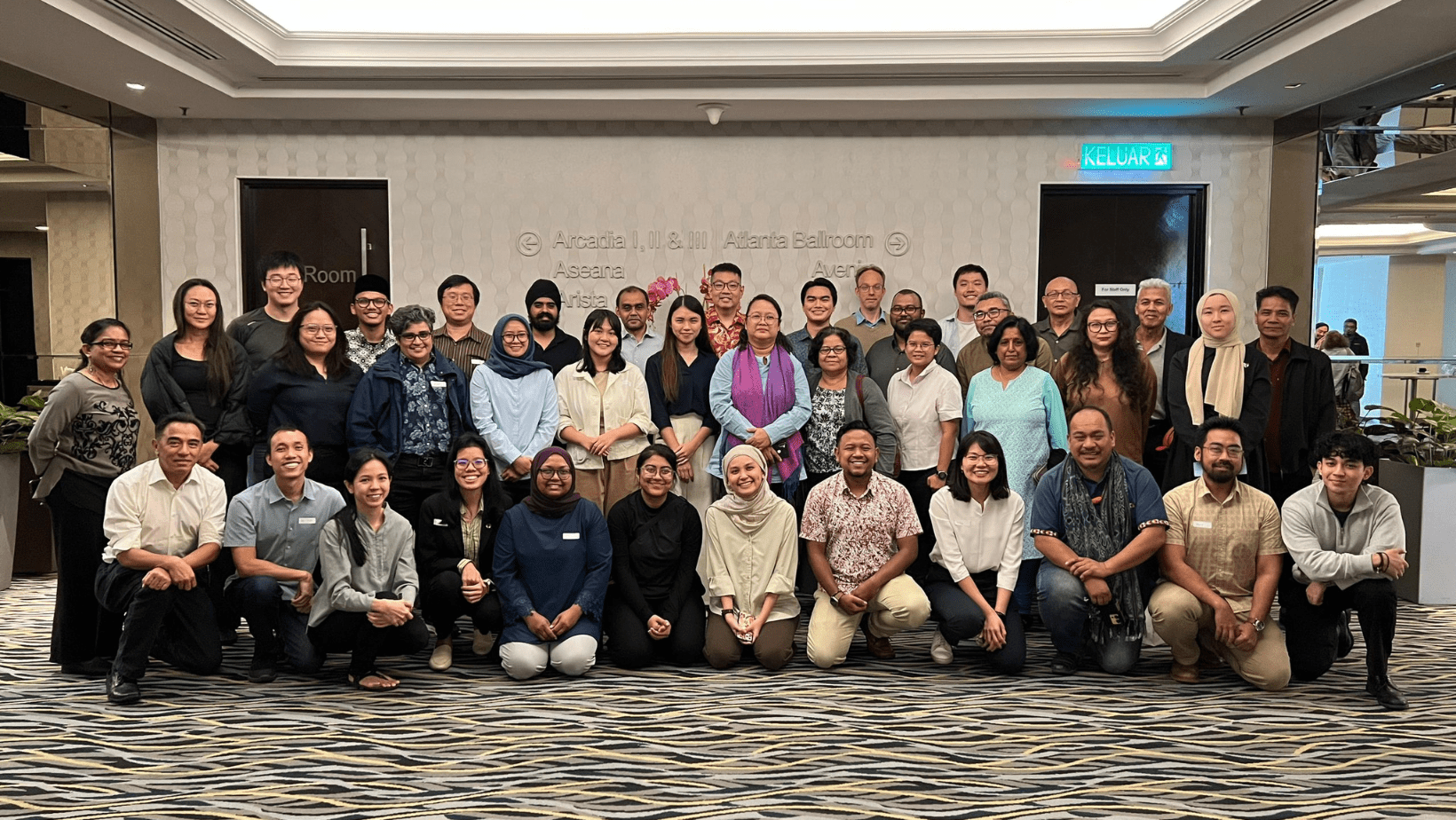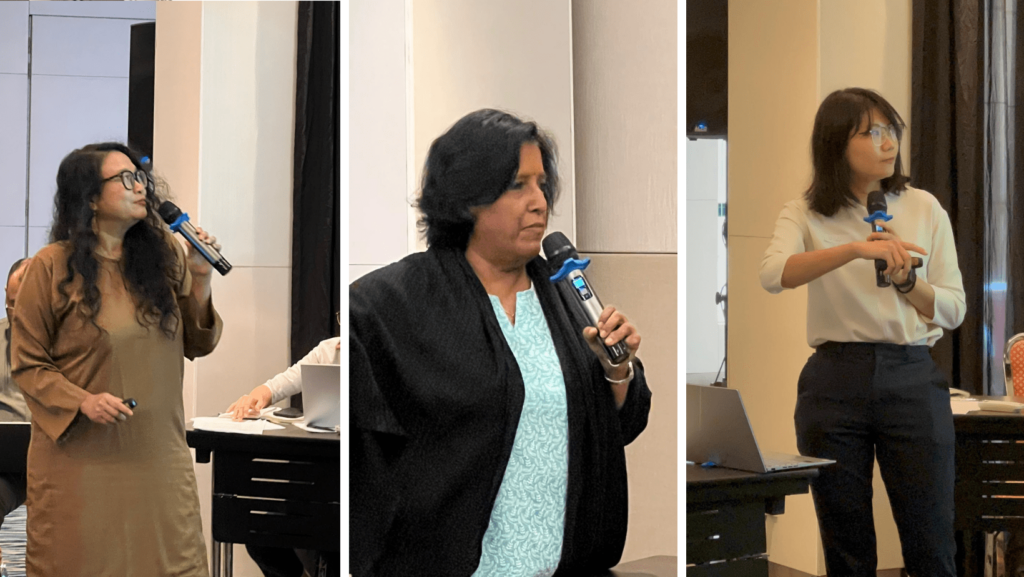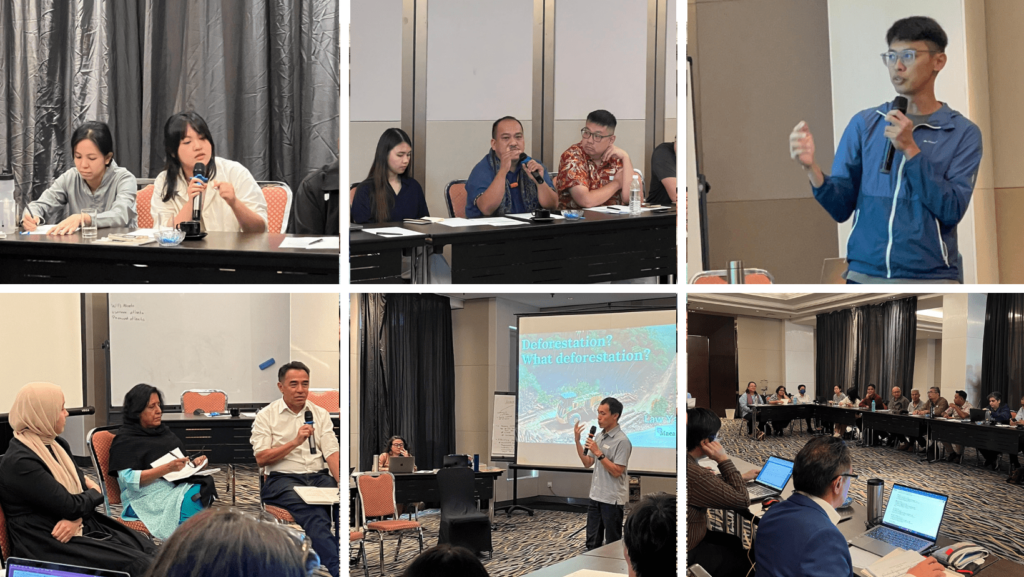News
Forests & Finance: Deforestation and Financial Accountability

Original article posted by SAM
Sahabat Alam Malaysia (SAM), organised a 3-day Forests & Finance (F&F) Symposium between 15 and 17 April 2025. A total of 26 participants from 21 organisations from both west and east Malaysia joined this symposium which examined the role of financial institutions in upholding community rights and protecting forests and holding them accountable. SAM is the Malaysian partner in the Forest and Finance Coalition*.
A pre symposium capacity building workshop was conducted by a representative from Profundo, one of the eight coalition partners of Forests & Finance Coalition apart from SAM. This capacity building workshop was intended to give all participants an exposure to the mechanisms behind the mainstream financial architecture. A broad range of topics, from the types of companies, understanding company balance sheets, types of banks and their governance models, the role of capital markets, environmental and social standards of banking, the manner in which banks can exert influence on environmental, social and human right issues, and the role of civil society in influencing banks to stop deforestation and violation of human rights were all covered in this capacity building workshop.
Many participants found the workshop interesting but dense as they had to wrap their heads around a lot of information and the subject of finance is not an easy topic. However, the relevance of the workshop became clear towards the end of it, when they learnt how financial systems could be used as a form of civic objection in their work.

The symposium proper began with a scene setting on deforestation drivers in Malaysia and along with the launch of Banking on biodiversity collapse: Malaysian edition report. This was then followed by a presentation on the overview of financial sector guidelines and regulations on sustainability and governance issues. A panel discussion was convened to discuss the gaps in the financial regulation to avoid financing deforestation and uphold community rights, and how we can improve and advocate for a financial system that does not contribute to the environmental and social abuses tied to projects that drive deforestation and cause harm to the indigenous and local communities.
Other topics of interest during the symposium include a presentation on how the Malaysian financial institutions’ responsible investment and financing policies stack up. Recognising the root causes and systemic causes of the issues we are facing at hand, a panel discussion was convened to explore the role of voluntary responsible investment and financing policies in protecting forests and social safeguards in Malaysia, including the challenges faced in implementing these policies.

During the symposium, an independent journalist also shared a compelling case study on investigating and exposing a Malaysian public-listed bank that is involved in facilitating deforestation.
The last day of the symposium focused on the Malaysian Financial Institutions’ role in investing and financing plantation companies operating in Indonesia. Malaysian companies and financial institutions are among the significant players in the plantation sector in Indonesia. One of the detrimental environmental and public health issues that stems from the proliferation of the plantation sector is the annual Southeast Asian haze events caused by variety of factors from the use of fire for agricultural purposes, exacerbated by the El Nino Southern Oscillation (ENSO) cycle and further sustained by the regional political economy system, poor governance and financial regulatory framework.
There was also a panel discussion on the link between regulatory gaps addressing transboundary haze, and the corresponding accountability of the financial sector. This panel discussion revolved around the 2024 SUHAKAM Report examining the inadequacies of the ASEAN Agreement on Transboundary Haze Pollution (AATHP), lack of harmonised domestic legislations to address haze pollution in the Southeast Asian region, the main actors behind the forest fires in Indonesia. The panel discussion also touched on the efforts by the Indonesian government in addressing the situation as well as the historical reasons behind the forest fires in Southeast Asia, especially when compared with smallholder farms that practice controlled burning and the urgent need to streamline regional and national laws to address the haze pollution.
This panel discussion was then followed by a knowledge sharing session on the Taskforce on Nature-Related Financial Disclosures (TFND) and the key concerns raised by civil societies on TFND. To further the discussion, resource persons from SAM also conducted a session discussing ‘new threats’ to forests and community rights in the form of nature-positive, biodiversity and carbon offset and credits and critical minerals mining. The symposium concluded with next steps and ways forward for participants to work more coherently to demand and hold the Malaysian financial sector accountable by the regulatory body.
*F&F is an initiative by a coalition of campaign and research organisations including Rainforest Action Network, TuK Indonesia, Profundo, Amazon Watch, Repórter Brasil, BankTrack, Sahabat Alam Malaysia (SAM), Friends of the Earth US, CED Cameroon and Milieudefensie. F&F platform provides a comprehensive source of information on the funding of economic sectors that are at risk in driving tropical deforestation in the three most important tropical forest regions (Amazon, west and central Africa, and Southeast Asia) and also conducts policy assessment to evaluate the quality and robustness of the financial institutions’ financing and investment policies related to environmental, social and governance issues.